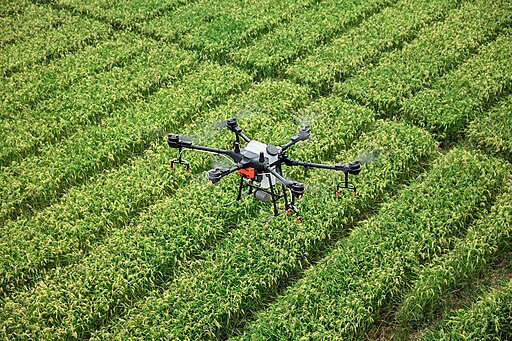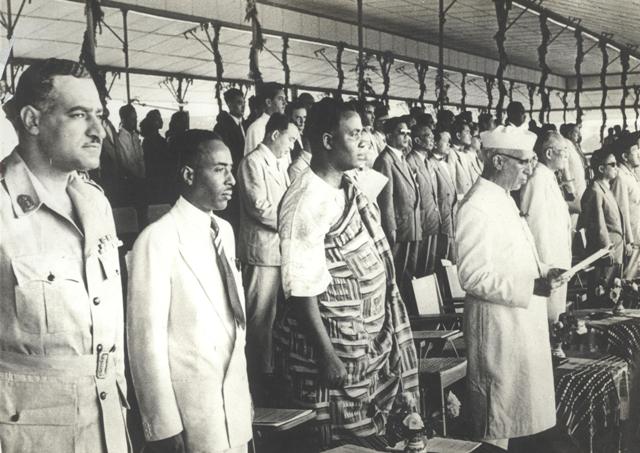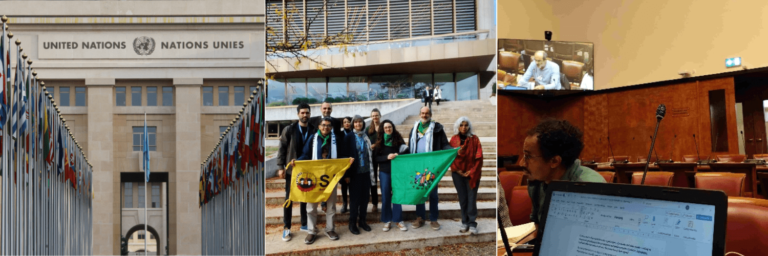Does agriculture need “new technologies”?
This article was published in the Swiss newspaper Le Temps on September 7, 2023, and can be found here (in French). In this article, Melik Özden, director of Cetim, responds to the director of the multinational seed company Syngenta, promoting new technologies in agriculture. He prefers peasant agriculture to new technologies, and calls for the realization of peasants’ rights.
In his article published in the Swiss newspaper Le Temps on August 25, 2023, Erik Frywald, CEO of Syngenta, advocates for the use of new technologies in agriculture to address various challenges, including feeding the hungry, ensuring “food security”, reducing the environmental impact of the agricultural sector, and adapting agricultural production to the climate crisis. In short, these new breeding techniques (formerly known as GMOs, also referred to as genetic scissors) are presented as a solution to all the problems in agricultural production and malnutrition issues. It is worth questioning the validity of these arguments.
Indeed, while the mechanization and chemicalization of agriculture (not to mention intensive farming) initially enabled to increase agricultural production, they have also caused serious problems that have become almost insolvable today: a decrease in food quality, increasing soil and water pollution, land depletion due to monocultures and their progressive desertification, loss of biodiversity, water wastage, not to mention their impact on health and social issues, given that hundreds of millions of peasants have had to leave rural areas (willingly or not) to the point that the majority of humanity now lives in urban centers.
The introduction of GMOs and/or other technologies, including digitization, into agriculture has only worsened this situation with, among other things, sterile seeds. It should be recalled that these technologies can in general only be used on a large scale and in (usually non-subsistence) monocultures to be “efficient.” Furthermore, unlike traditional peasant practices based on millennia of experience, we currently ignore what these “new technologies,” developed in laboratories, may have in store for us as unpleasant surprises! Bearing in mind that, despite being presented as cure-all, these approaches only serve one imperative: to generate profits for the majority shareholders of the companies developing them.
As a matter of fact, it is not the intensive food industry that feeds humanity (approximately 30% of global food production), but rather family farming (around 70%). The dominant food system is also highly unequal: food is not lacking on the market, but hundreds of millions of hungry people simply do not have neither access to the market nor the means to buy it. On this front as well, one can clearly see the true intentions of defenders of the dominant food system who claim to feed humanity with the agri-food industry and/or “new technologies.”
Transnational corporations active in this sector pose another threat to family farming, as they tend to monopolize the food chain, both in terms of production (i.e. seeds and inputs) and sales (distribution). These multinationals have strong lobbying power over political decision-makers, including within international organizations (such as WIPO, FAO, WTO, and the UN).
A qualitative food production must adhere to the following imperatives: soil and biodiversity preservation, sparing use of water, production that meets the needs of the populations concerned and that is sustainable, fair, accessible, and non-speculative (1).
In other words, food production must meet the criteria of peasant farming and agroecology, free from harmful chemicals for both humans and the environment and aim for food sovereignty. This is what family farming has been doing for millennia to feed humanity. Therefore, it is in our interest to support it and create favorable conditions for it to continue its work and live with dignity, in accordance with the UN Declaration on the Rights of Peasants (UNDROP)1. All research in this field should be conducted in consultation with the relevant stakeholders (family farmers) and with the support of public authorities.
1See CETIM’s book on the UNDROP: https://www.cetim.ch/wp-content/uploads/The-UN-Declaration-on-the-Rights-of-Peasants.pdf







